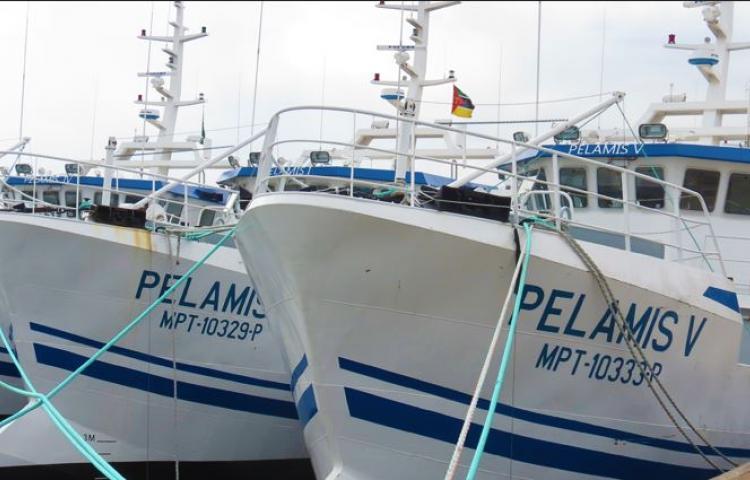Africa-Press – Mozambique. Mozambique’s government plans to finalise the liquidation of four companies next year as part of the Reform of the State Business Sector, including the Mozambican Tuna Company (Ematum), which is involved in the hidden debts case.
According to the documents supporting the proposal for the Economic and Social Plan and State Budget for 2024, the government has set itself the objective of “finalising the liquidation process of four companies” owned by the state, such as Correios de Moçambique, Mozambican Mining Company EMEM, Sociedade Malonda and Ematum.
Ematum’s main activity is fishing, and it is one of the three state-owned companies responsible for the hidden debts case triggered in 2016, involving the alleged bribery of public officials, in particular former Finance Minister Manuel Chang, to approve contracts and the financing of loans from three state-owned companies (also Proindicus and MAM) for the purchase of fishing boats and maritime safety equipment from Privinvest.
In the same document, the government undertakes to continue the process of restructuring the state-owned companies “in operational, financial and human resources terms, with a view to making them viable and profitable”.
It will also “monitor the indebtedness” of these companies and approve a Regulation for the Contracting of Goods and Services for state-owned companies, among other measures.
READ: Mozambique: CTA urges the State to settle outstanding invoices – around $400M worth
The former director of the Mozambican secret services, Gregório Leão, justified the creation of the Mozambican Tuna Company in September 2021, during the trial of the hidden debts case in Maputo, with the need to gather information on suspicious activities on the Mozambican coast.
“Ematum was for tuna fishing and also to provide us with information through intelligence work on what was happening at sea,” Leão said in court.
The Public Prosecutor’s Office indictment pointed out that Ematum received $850 million (€727 million) and was one of the three firms used as a vehicle to carry out the criminal scheme.
Meanwhile, in the case taking place in the UK, the bank Credit Suisse and the shipping group Privinvest announced on Wednesday that they had reached an agreement on the Mozambique debt case underway in the London Commercial Court and which is expected to end in December. In a joint statement, together with Privinvest’s owner, Iskandar Safa, they said they had reached “a global solution to all present and future disputes between them relating to state-guaranteed financing transactions in Mozambique”.
“The parties are satisfied that they have resolved this long-standing dispute arising from events that occurred a decade ago,” they concluded in the statement issued on Monday and to which Lusa had access today, without providing further details.
The agreement now allows the Swiss bank, which has since been acquired by the UBS group, to stop participating in the trial, as it had already concluded an agreement with the Mozambican government that resulted in the forgiveness of around $450 million (€422 million) to the African country.
Credit Suisse would still be financially liable to Privinvest if it were proven that the shipping group had bribed the three former bank employees, Andrew Pearse, Surjan Singh and Detelina Subeva, who are also no longer taking part in the trial.
Mozambique’s accusations against Privinvest and Safa of bribing public officials remain unresolved.
Mozambique is demanding $3.1 billion to cover costs and other financial commitments, but Privinvest denies having committed any irregularities, claiming that the payments made to the people in question were investments, payments for services and contributions to political campaigns.
The judgement is also expected to decide on the lawsuits filed by the VTB and BCP banks to be reimbursed for the financing given in 2013 and 2014 to Mozambican public companies.
The trial is expected to continue until the end of December, but the decision is likely to take several months to be announced.
The case of the “hidden debts” dates back to 2013 and 2014, when Chang approved state guarantees on loans from Proinducus, Ematus and MAM to the banks Credit Suisse and VTB without the parliament’s consent.
Discovered in 2016, the debts were estimated at around $2.7 billion (around €2.55 billion at the current exchange rate), according to the indictment filed by the Mozambican Public Prosecutor’s Office, leading to legal proceedings in the United States and Mozambique.
For More News And Analysis About Mozambique Follow Africa-Press






